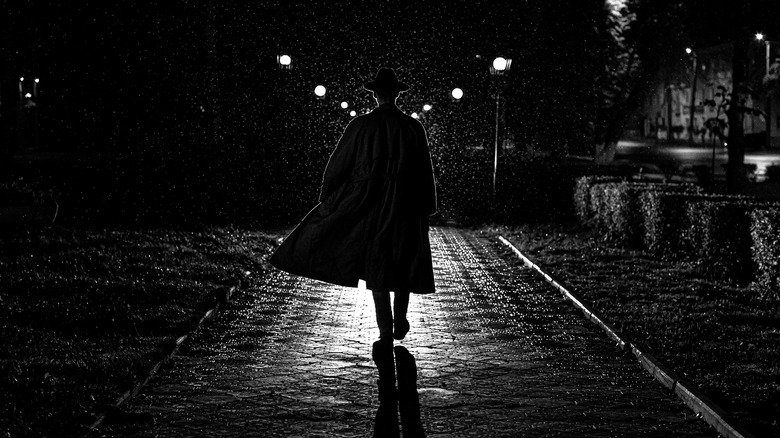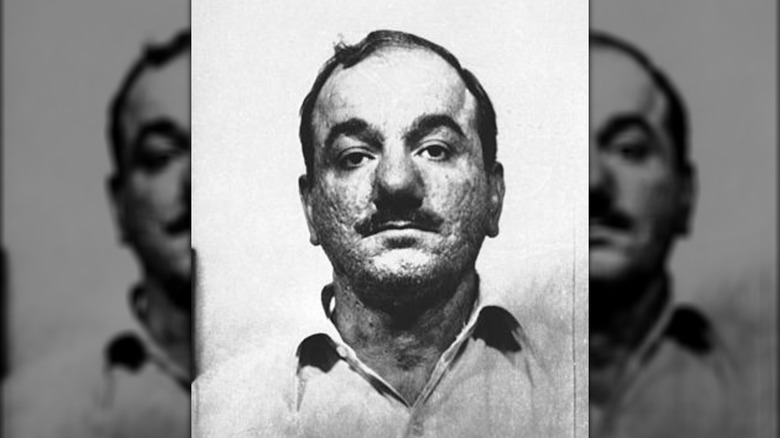Bruce Springsteen's Folk-Rock Classic Atlantic City Was Inspired By Violent Mob Hits
The solitary, ghostly tone of Bruce Springsteen's "Atlantic City" elicits a sort of hopeless melancholy in the heart of the listener. There's a longing at its core that seems to lament outright at anyone or anything that will heed its lonely cry. It's a song that feels so titanic and earth-rumbling, though it employs little more than an acoustic guitar, a harmonica, and The Boss's unmistakable bellow. If you're a Bruce fan, there's a good chance it's already one of your favorites — or maybe you've heard The Band's version, which is arguably just as good.
In either case, "Atlantic City" is one of those songs that effortlessly saturates the tear ducts and transports you to a cryptic place beyond conscious reckoning. It's a poetic masterpiece that relays a shrouded narrative through a soft tempest of ominous words — words that make you wonder what it's really about. Bruce Springsteen is heralded for his exceptional storytelling abilities. Through songs like "Nebraska," "The River," and "Atlantic City," he exemplifies a lyrical craft that only someone like Bob Dylan can stand next to. The latter is one such song that harbors a tragic and beautiful story; a story that chronicles a life of poverty, organized crime, and murder (via Song Facts).
What is Atlantic City about?
The narration of "Atlantic City" reads like dismal urban folklore. According to American Songwriter, the song tells the story of a man who, having falling on irredeemably hard times, resorts to working for the New Jersey mafia in order to make ends meet and feed his starving family. It talks of "rumbles on the promenade," gambling commissioners caught in the crosshairs of mob-oriented financial feuds, and all the grisly byproducts of organized crime's outward effect on a community.
Near the end of the track, Springsteen remarks, "I've been lookin' for a job but it's hard to find / down here there's just winners and losers who don't get caught on the wrong side of that line," after which the main character accepts a job (or agrees to do a "favor") from a mysterious man who has suggestively commissioned him to carry out an assassination (per Springsteen Lyrics). While much of "Atlantic City's" narrative content is made up for the sake of the song itself, it draws certain allusions to real-life instances of mob violence that took place around the time it was written.
Who was The Chicken Man?
The song comes out swinging with the line, "They blew up the Chicken Man in Philly last night / Now they blew up his house too." According to the National Crime Syndicate, Phillip Testa — otherwise known as "The Chicken Man" or "The Julius Cesar of the Philadelphia Mob" — was killed on March 15, 1981, when a nail bomb went off at his Philadelphia residence. Testa, upon returning home, triggered the device that was left by rival members of the crime family he was acting boss of at the time.
It was mobster Nicky Scarfo who reportedly ordered the hit. After Testa was pronounced dead, he assumed his place at the head of the family and started orchestrating gambling circuits across Atlantic City as well as Philly. According to Song Facts, Scarfo's reign was predominated by disarray and bloodshed, and it left an infamous scar upon the tattered face of Atlantic City history. It also provided Bruce Springsteen with inspiration for the opening line of his timeless song.


